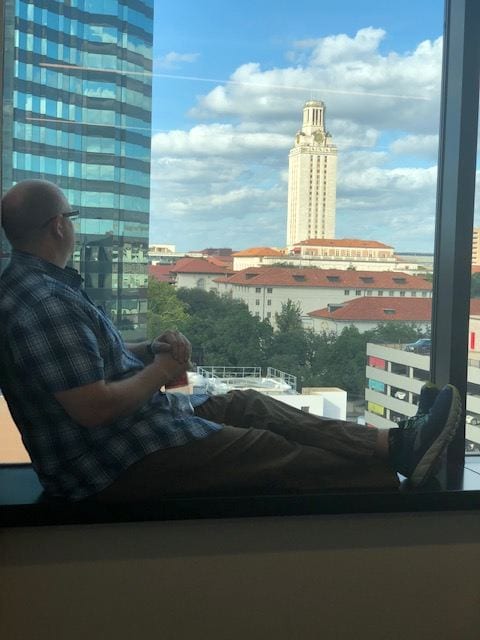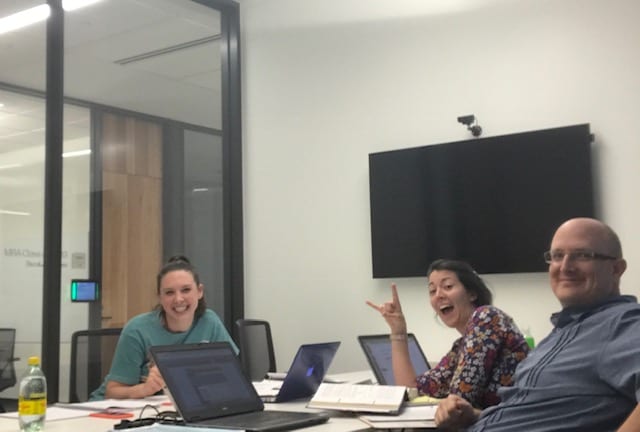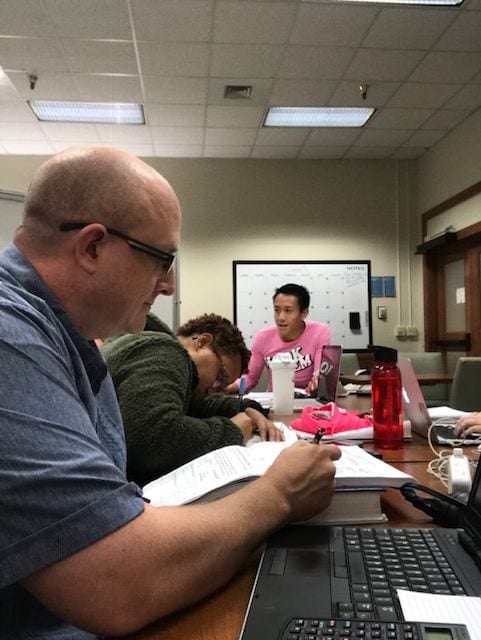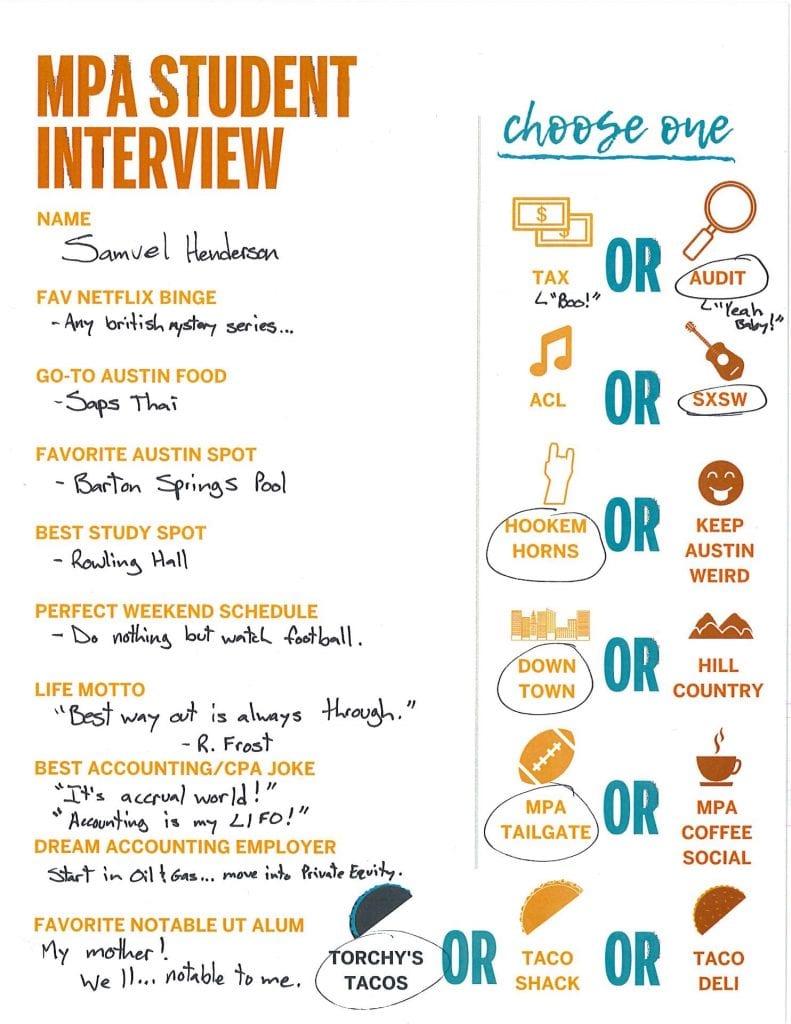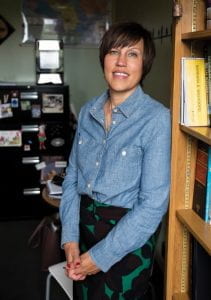 On September 1, 2021, the Master in Professional Accounting program welcomed its new Program Director, Professor and Assistant Department Chair Kristina Zvinakis! Read on to learn more about Kristina, her path to Texas McCombs, and her goals for the MPA program.
On September 1, 2021, the Master in Professional Accounting program welcomed its new Program Director, Professor and Assistant Department Chair Kristina Zvinakis! Read on to learn more about Kristina, her path to Texas McCombs, and her goals for the MPA program.
Tell us a bit about how you came to be at UT.
While it’s hard for me to believe, this is my 15th year at McCombs. I earned my PhD here and then taught at a couple of different universities after I graduated. I returned to UT Austin when our then Department Chair, Ross Jennings, invited me to come back to teach tax classes. I count is as one of the better decisions I’ve made.
What drew you to study accounting and to a career teaching accounting?
I grew up in a family that believed in the importance and value of education to secure a successful future. We (my two sisters and I) were steered toward business as a major, as that seemed to be a good foundation for many careers. When I started college (at the University of Illinois Urbana Champaign), I didn’t know much about business. I was drawn to my accounting classes initially because of the problem-solving nature inherent in the class content. As I got further into coursework, I realized that I liked learning about, thinking about, and trying to sort out how regulation (i.e., the different accounting systems) affects the behavior of individuals and businesses. Reflecting on my education, I know that I didn’t appreciate how lucky I was to have such good professors. My undergrad and PhD program faculty cared deeply about their students, invested tremendously in their teaching, and were willing soundboards and mentors. Those faculty were a big part of the reason that I chose an academic career path. I hope that through my teaching I am paying back what they did for me.
What classes do you teach/have you taught at McCombs?
Tax Research and Corporate Tax are my primary classes; I’ve also been fortunate to teach in our summer study abroad programs.
Tax Research is a challenging course to teach and, as a result, it’s a very rewarding class to teach. In class we first learn about the different sources of tax law. After that, I ask the students to apply what they have learned to determine and explain the tax consequences of a particular transaction.
My observation is that people who have interesting jobs often are working on solving difficult problems. As such, I try to assign challenging tax-research problems. I hope that by helping students develop a framework for problem solving and then giving them some practice applying that framework, they will develop skills that will be useful to them after the leave our program.
What’s your vision for the MPA program?
Keeping the program as well-respected as it is now is high on my agenda. My vision for the program doesn’t encompass a radical overhaul, but includes two broad goals. First, I want to ensure that our curriculum is not only current on the dimension of accounting knowledge, but relevant in the context of the business environment today’s students will enter. The Department of Accounting recently added an environmental, social, and governance (ESG) elective to the accounting curriculum, and our faculty are working hard to incorporate more analytics into their classes. We have a responsibility to ensure that our students learn as much accounting as possible while in our programs. However, we also have a responsibility to ensure that our students appreciate the role of accounting in an evolving business environment.
Second, given the proliferation of non-accounting master’s degrees, we need to be mindful and make sure that students are aware of the breadth of careers available to someone with an accounting background. Our graduates take jobs in a variety of industries and often use their accounting knowledge to distinguish themselves from their peers and leverage themselves into leadership roles. My job as a faculty member and as MPA Program Director is to ensure that students acquire the skills and the knowledge that allow them to find interesting and meaningful work. An accounting major can open doors to many different careers.
What’s an interesting fact about you people may not know?
I am Lithuanian and that heritage is on both sides of my family. As World War II was ending, my mom and her family fled Lithuania and eventually emigrated to the U.S. We grew up speaking Lithuanian, attending Lithuanian school on Saturdays, and going to Lithuanian summer camp (in Michigan, about 80 miles west of Detroit). Every year for one week of the summer, I volunteer at that same camp (my job involves working in the kitchen, which is not something that I know much about, so I learn something new every year).
Many of the people I grew up going to summer camp with also volunteer and some of my cousins are integral in organizing the week during which I volunteer, so I get to spend time with people who I have known forever but don’t get to see very often. Austin doesn’t have as large a Lithuanian community that I grew up with in Chicago, so I enjoy reconnecting with my Lithuanian heritage during the summer.
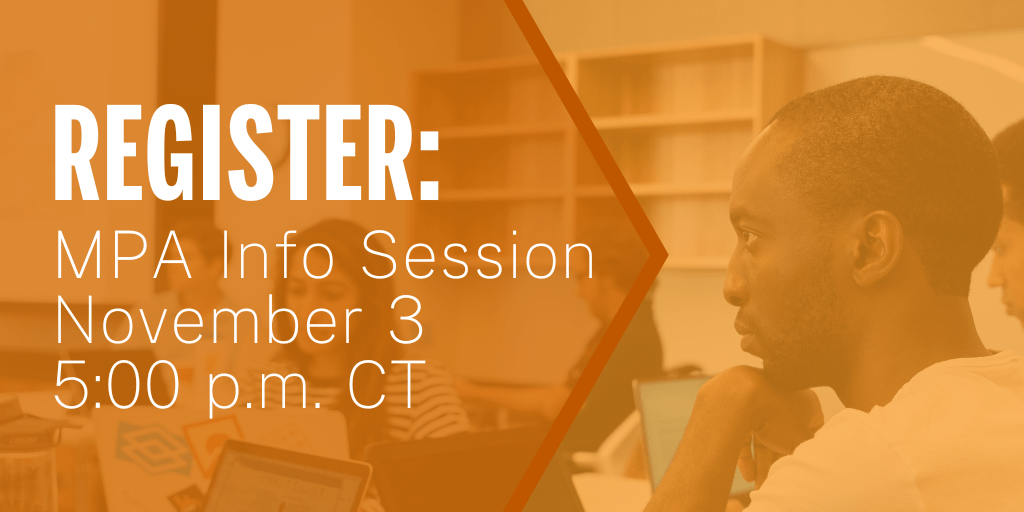
 On September 1, 2021, the Master in Professional Accounting program welcomed its new Program Director, Professor and Assistant Department Chair
On September 1, 2021, the Master in Professional Accounting program welcomed its new Program Director, Professor and Assistant Department Chair 